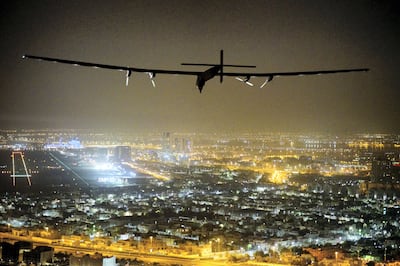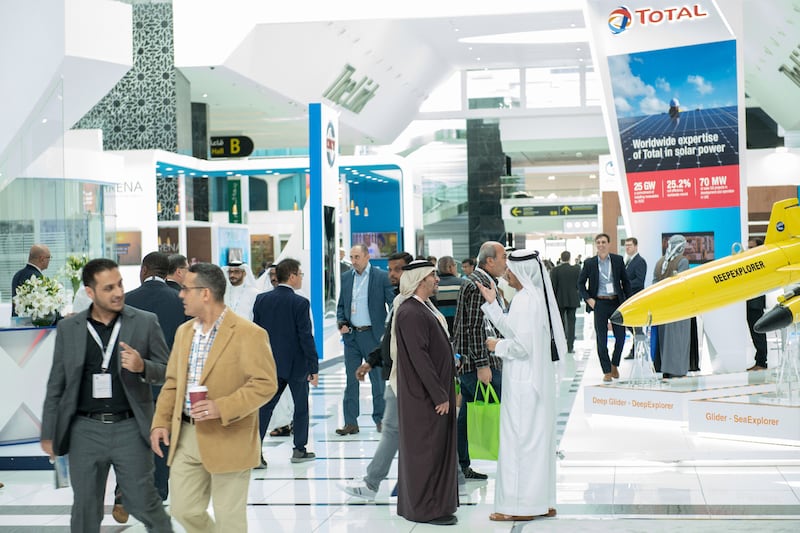When Swiss explorer and clean technology pioneer Bertrand Piccard took off from Abu Dhabi in a revolutionary solar-powered aircraft on March 9, 2015, it was the beginning of a 23-day journey around the world that provided an exciting demonstration of renewable energy’s potential. Nearly 10 years later, Dr Piccard is back in the UAE capital to speak about his plans to co-pilot another flight around the globe, this time powered by hydrogen.
His talk will take place today at the Green Hydrogen Summit, a Masdar event that is part of the World Future Energy Summit. Dr Piccard’s renewables-fuelled globetrotting is part of the first major energy meeting to take place in the Emirates following last year’s successful Cop28 climate summit. The gathering of more than 30,000 visitors, 400 companies and 350 speakers will arguably be focused on maintaining the hard-won momentum generated by the UAE Consensus struck in Dubai late last year.

This is a global event that again places the UAE and its leadership role at the heart of the climate conversation. It also takes place at a critical moment: the Middle East is convulsed by conflict and the world continues to break records for elevated temperatures. Finding effective ways to change the global economy from one that runs on fossil fuels to one that effectively and rapidly transitions to less-polluting, sustainable renewables is an issue of global import that has not become any less urgent.
The UAE is a fitting place to host such a conversation. The country has already embraced the need for managed energy change, devoting considerable resources to medium and long-term goals for achieving this. For example, the Arab world’s second-largest economy aims to achieve hydrogen production of 1.4 million tonnes annually by 2031, an amount that is expected to increase to 15 million tonnes every year by 2050. In addition, the Cabinet last July confirmed that the UAE will invest up to Dh200 billion ($54.4 billion) over the next seven years in an updated national energy strategy, which includes hydrogen.
The World Future Energy Summit takes place four months after Cop28 and the agreement on the UAE Consensus that helped provide a clear direction for the energy transition. Holding the Cop28 presidency, the UAE is playing a pivotal role and established the Cop Presidencies Troika to ensure continuity and implementation on climate action between the Emirates and the next two Cop hosts – Azerbaijan and Brazil.
The Abu Dhabi summit also takes place as the climate crisis continues to produce some unpleasant surprises. Earlier this month, Chinese scientists discovered a hidden pool of inorganic carbon – 2.3 billion tonnes of it – in the Earth’s soil that could worsen the world’s climate problems if it is released. It is timely therefore that panels at the World Future Energy Summit will examine aviation, shipping and heavy industry, with a focus on decarbonising sectors such as steel production.
At a time characterised by crisis and division, where a failure of diplomacy is wearing away at the fabric of the international community, it is welcome to see an event taking place that is solutions-focused and that builds on the vital work of previous climate and energy summits. Not all the topics being examined in Abu Dhabi this week will have the appeal and elegance of solar-powered flight, but they do hint at the possibility of a brighter future. It is this optimism that we need, now more than ever.





